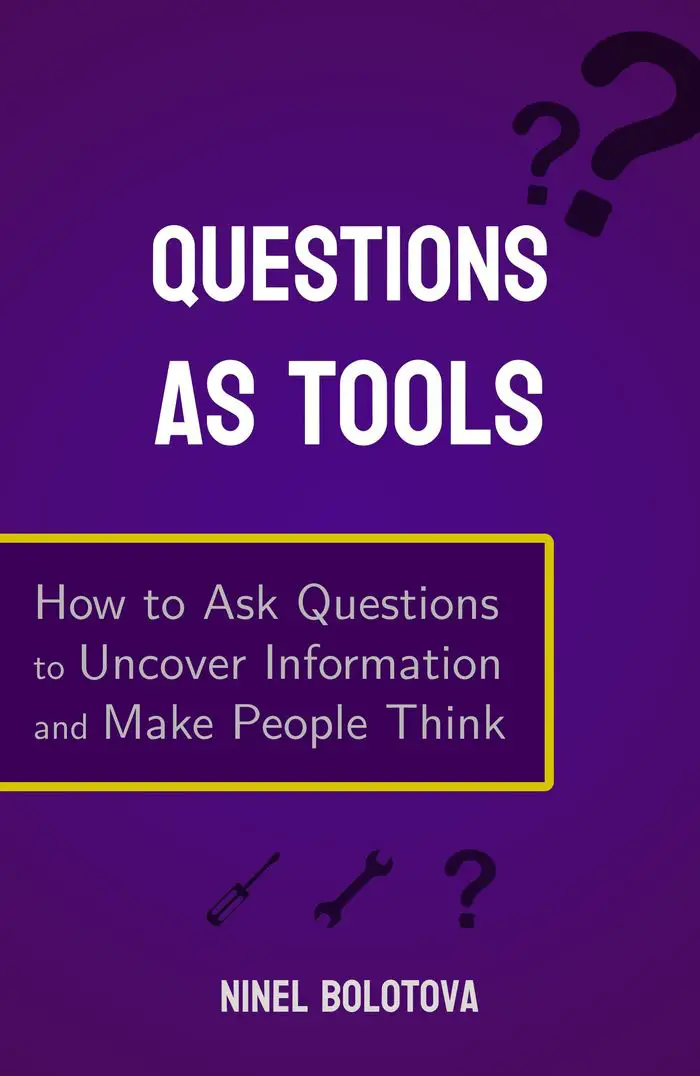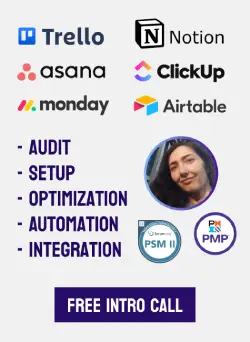Hiring Competent Freelancers and Employees: the Screening Questions
Have you ever spent hours going through job post applications and interviewing candidates, only to feel that you’re still not confident about who to choose?
Have you ever had candidates not showing up for calls without much explanation? Or situations when it became apparent minutes into a call that they aren’t who they were presenting themselves as in their cover letter and CV? Or, worse, when it became apparent later in the process, maybe even after you hired them?
In this article, I’ll share a simple but efficient method that I used to hire many great people in various professional areas, within days of posting a job and with a high success rate of the work eventually delivered. The tricks I share here aren’t the only factor that contributed to that – a trained “eye for character” also helps – but they definitely made the process much faster and more pleasant.

photo by @tima-miroshnichenko on Pexels
As you have likely guessed, my method is based on filtering, or screening questions. While the idea of asking questions before a full interview is far from new, there are a few nuances here related to what to ask and when.
Making a select few screening questions a requirement to submit a job post application.
Screening and pre-screening interview questions vs screening job post questions
Screening questions are usually used in the context of an interview, or at least a pre-screening interview, which is shorter but is usually also a call that needs to be scheduled.
As short as the interviews might be, they’re disruptive – you need to schedule around them, and tuning in and then back to whatever you were doing breaks concentration.
You’ll have facts about their work experience in their CV; with screening questions, your goal is to get to the core of how the person approaches the work and handles challenges.
Who could benefit from the “Job post screening” method?
Startups and small business owners hiring to expand their team
Companies without a dedicated HR department, where the decision makers go through the applications themselves.
Dedicated HRs filling positions in specialized teams
I recall a sad story of a lead developer who had the HR department sending potential hires his way, and he ended up interviewing them for hours and not being too excited about most of them.
Do developers or other specialized professionals have a say in what the screening questions are? The ones in the initial job post, and those in the follow-up? Even if HR can’t actually evaluate the answers, going through the written answers of 20 candidates and selecting 5 to interview, instead of talking to all 20 right away, would make a world of difference.
My assumption: you offer competitive wages for the level of service you’re aiming to receive.

Main principles of the job post screening questions
- Use only 3 deep questions. Up to 5 if you *absolutely *must, but if you’re getting too many “good” results with the questions you’re asking, it likely means that they’re too broad and could be updated to narrow your filters and get deeper into the heart of the matter.
- Questions could be answered with a few sentences. Shouldn’t be so obvious that they could be answered in one line, but don’t use loaded questions expecting the candidates to write a whole story to answer. Writing succinct, to-the-point answers is as much of an art as writing the questions that require those answers.
- Seeing their approach from an angle of a specific problem. You describe a task and ask how they would go about solving it and how many hours it would take approximately.
Signs that your screening questions need some work
- If they could answer a question by copying a paragraph from their CV, it’s missing the point of the screening question concept.
- If you run your question through ChatGPT with a prompt: “I’m applying for a position X, and I’m asked the following…”, and the answer is something you’d find plausible and appealing if you saw it on an actual job application, then the question might still be ok to use, but it’s definitely not bulletproof.
Red flags in candidate answers when hiring
- Saying “Let’s discuss it on a call” instead of answering the specific questions. If they aren’t invested enough to take a minute to answer, you also shouldn’t bother engaging with them. Most likely it’s an agency spam-replying to all job posts they see, in hopes someone will react and they could talk them into something on a call.
- Answers seem too generic or bloated, listing many things instead of focusing at the core of what was asked.
- Style of the answers doesn’t match the style of their profile or CV.

photo by @tima-miroshnichenko on Pexels
Structuring the “quiz” application answers of potential employees
Besides the questions that require thoughtful answers based on experience, there are other things you might need to know to filter the applications – like their availability in your time zone, their experience with certain tools, and so on.
Those are more of a quiz-type questions, and I count them separately. They can be mentioned in the job post or, if you want the answers to go to a reference sheet right away, you could link a form in a follow-up message once their application caught your interest.
But please only make them fill the questionnaire if you’re actually considering them a potential fit for the position and need to compare with a few other candidates. Having everyone who applies fill the questionnaire is not only disrespectful to their time, but it dilutes your database with entries that ultimately bring no value.
Of course, you could always filter later, but I strongly advocate for the methods that increase the quality of the initial input, whatever the matter at hand is.
Finding competent freelancers and employees: advice from a recruiter on Upwork
I used Upwork to hire for my clients, filling positions and finding contractors in various areas, from design and development to law and photography.
It does have a contract initiation fee on the client side, and whenever a payment is made, an extra percentage is cut from both the contractor and the client. But, having been on both sides, I could definitely say that the Upwork user experience is much more kind to the clients than it is to the freelancers.
Advantages of Upwork for recruitment
- There are professionals of all kinds from around the world, and no matter when and what you post, there will be candidates who are active and available. You could also invite people to apply after pre-filtering them based on the review score, total earnings, hourly rate, and so on.
- Each profile has a track record of completed jobs, so you could verify what they actually did earlier and how real clients rated their performance in the reviews.
- Unless invited directly, freelancers have to use tokens to submit a proposal, and it goes a long way in spam prevention.
- From a usability perspective, it’s easy to up- and downvote the applications to quickly hide those that definitely miss the mark and create a shortlist to choose the best ones from.
- If the job post has screening questions, they’re mandatory to answer when applying.
Screening questions on Upwork, LinkedIn and other platforms
However, I see screening questions being underutilized – the option to add them is easy to miss if you don’t know where to look, so most often they are either not added at all, or the example questions Upwork suggests are used instead of writing the custom ones.
Same principles could be used on other freelance platforms or when posting a job on LinkedIn or other job boards – if the platform doesn’t offer an option to add mandatory screening questions, you could make a note in the beginning of your job post, asking to read it carefully and answer the questions below in the cover letter.
Screening/filtering funnel for hiring freelancers and employees
- Job description. Writing a job description that clearly lists the responsibilities and requirements.
- Job post screening questions. Ask the tailored screening questions in your job post. Asking everyone the same set of questions will help to quickly compare the candidates.
- Calls with the select few. Aim to only do calls when you narrowed the shortlist down to 3-5 best candidates.
- Trial tasks whenever possible. Some jobs lend themselves to this better than the others, but if at all possible, do a paid trial task to get the most accurate taste of what working with that person will be like.

photo by @yankrukov on Pexels
Should I use screening questions to hire high-caliber professionals?
I’m reviewing the situations where you receive a number – sometimes a large number – of job applications and want to weed out the best without spending hours and days on emails and calls.
But even if you’re reaching out to professionals and trying to make your job offer the most appealing, unless you have a single person you want to work with and don’t even consider anyone else, you’ll need to make a choice. The more informed that choice is, the better.
If you’re asking questions that they find too basic and don’t hesitate to say so – maybe they’re indeed out of your league, but a more important point is, would you even want to work with someone who makes you feel stupid for asking questions?
I’d argue that screening questions are beneficial in any scenario – even the process of crafting them makes you think deeper about what you really need and look for.
This way, you’ll respect the seasoned professionals – just like you should respect anyone else – by asking tailored and thought-out questions.
How to check for personal qualities and values in potential hires
How do you know who the potential employee is as a person, would they be a good fit for your team?
Sometimes, the personality and professionalism is shining through their emails and interactions right away – how fast they reply, how skillfully they communicate, how proactively they anticipate your needs but aren’t being pushy with their solutions.
You’ll most likely still need to talk face-to-face to see the non-verbal cues and confirm your impression of them. But the way they answer the initial and the follow-up questions tells a lot about them,
Ask a question that requires making a choice to deal with the situation, and see if the route they go with their logic aligns with yours.
Speaking of choices you make as a business owner, you might want to check the Cynefin framework for decision-making.
A word to potential candidates
If you’re a freelancer or a job seeker reading this and finding it unfair: “Why would I pour my heart and my time into personalized answers, if they barely skim over them or never see them?”, then I’ll tell you this:
Yes, even though most of the bids you place will never get an answer, you still have to give each one your best shot. You should also be selective and deliberate about the jobs you bid on. Seeing it as purely the numbers game might be a viable model for some, but my personal advice would be to improve your specialization and value proposition, and use more focused methods.

photo by @karolina-grabowska on Pexels
Mindset for efficient hiring
Let’s recap the points we should keep in mind to be in the right headspace for the recruitment process.
1. Filtering.
When looking for anything, we prefer the pool of potential options to be large – then there’s more of a chance we’ll find just what we need, and healthy competition also drives better offers. But we wouldn’t go through all the listings in a row without some filters.
When filtering, it’s important to know what’s critical and can’t be compromised on – and what is a nice-to-have, but setting it too strict could cut off the otherwise great options.
If the filters we set still yield too many results, we could afford getting more specific. If there are too few good results, we need to expand the search area or relaxing the filters while keeping an eye on the core components.
2. Refactoring.
In programming, “refactoring” means restructuring, optimizing and simplifying code without changing its functionality.
If we need to take a certain action multiple times throughout the program, rather than writing it out every time, we write a function and call it whenever action needs to be taken.
If we find ourselves doing the same thing all over again, asking the same questions over and over again, it’s a glaring sign that something needs to be automated or otherwise streamlined.
Related: Workflow automation tips in task management tools.
3. Asynchronicity.
Asynchronicity is independence. Being free to do various processes in parallel, picking on one as you await feedback on the other, at the time that works best for you.
Independence requires autonomy. With freedom comes responsibility. If it’s up to a person to choose when and how they do something, then driven, proactive people will be head and shoulders above those who need to be told what to do.
Autonomy is the basis of competence. To get to a certain level of professionalism and maintain it, people need to be able to set their targets and achieve them.
4. Mutual respect.
You expect your potential contractors and employees to show respect by answering the questions in an honest and succinct way. You show respect by writing a clear job description and good questions.

 Ninel Bolotova, PMP, is a workflow expert setting up and automating processes in ClickUp, Trello, Notion, Monday and other PM tools. She enjoys challenges related to process setup, automation and optimization.
Ninel Bolotova, PMP, is a workflow expert setting up and automating processes in ClickUp, Trello, Notion, Monday and other PM tools. She enjoys challenges related to process setup, automation and optimization.